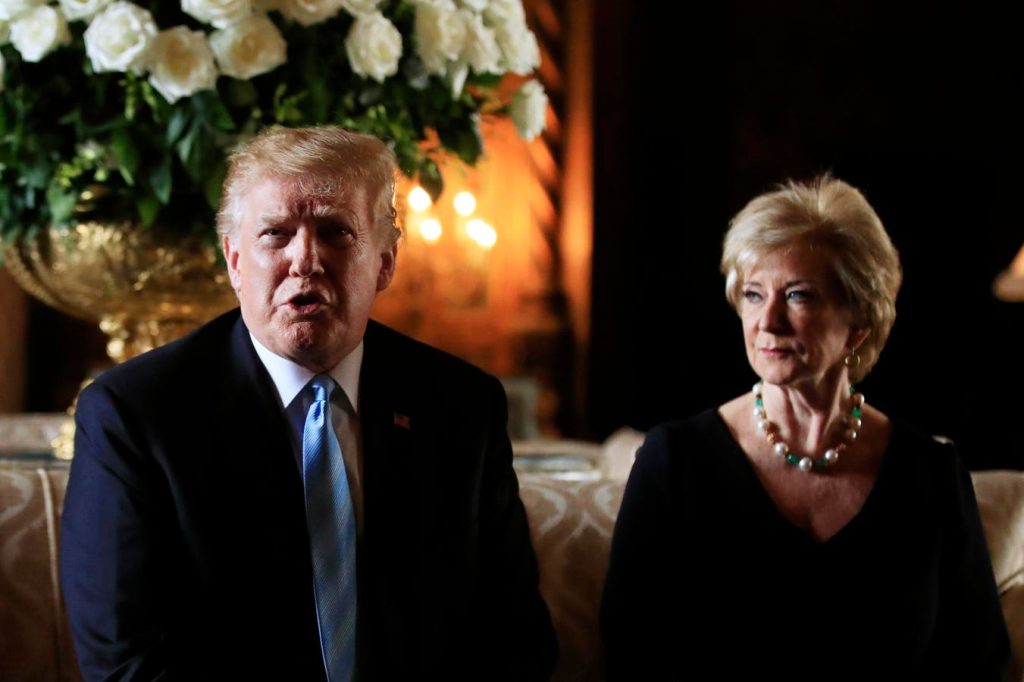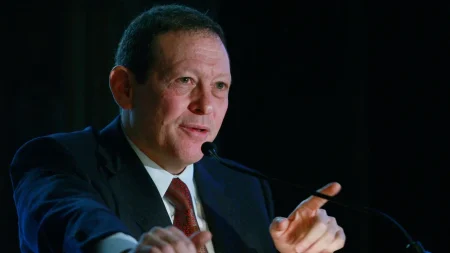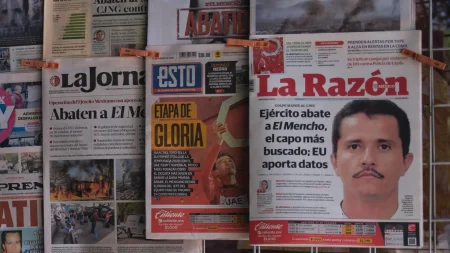Linda McMahon’s Quiet Million-Dollar Backing of Trump’s Madison Square Garden Rally
In the high-stakes arena of political fundraising, where fortunes are spent and influence peddled, a significant financial contribution often goes unnoticed amidst the cacophony of campaign rhetoric. Such was the case with Linda McMahon’s quiet million-dollar donation that underwrote former President Donald Trump’s boisterous rally at Madison Square Garden on October 27th. This revelation, gleaned from recently filed campaign finance disclosures, sheds light on the intricate web of financial support behind Trump’s political endeavors and the key role played by McMahon, a former WWE executive and head of the Small Business Administration during Trump’s first term.
McMahon’s substantial contribution was directed to the America First Action Fund, a newly formed super PAC that, at the time of the donation, hadn’t even officially registered with the Federal Election Commission. The timing of the donation, just days before the rally, and the subsequent disbursement of $500,000 to Madison Square Garden by the super PAC strongly suggests a direct link between McMahon’s funding and the event’s realization. Beyond the venue rental, McMahon’s contribution seemingly covered other rally-related expenses, including signage and travel costs, totaling over $720,000.
This act of financial support underscores McMahon’s unwavering commitment to Trump’s political aspirations. Having previously served in his administration and now nominated for the position of Secretary of Education, McMahon has consistently demonstrated her loyalty and willingness to invest heavily in Trump’s political future. This million-dollar contribution is merely the latest installment in her ongoing financial support, which has reportedly exceeded $22 million for Trump’s 2024 reelection bid.
While Trump’s return to the iconic Madison Square Garden aimed to project an image of strength and popularity, particularly in a city often considered hostile to his brand of politics, the rally was somewhat overshadowed by controversial remarks made by comedian Tony Hinchcliffe, whose jokes about Puerto Rico drew widespread condemnation and forced even Trump’s campaign to distance itself from the comedian. This incident highlights the unpredictable nature of political events and the potential for unforeseen controversies to overshadow carefully crafted narratives.
The story of McMahon’s quiet funding of the rally reveals the often-obscured financial mechanisms that drive political campaigns. Super PACs, like the America First Action Fund, play a crucial role in the modern political landscape, allowing wealthy donors like McMahon to contribute significant sums of money to support their chosen candidates. These organizations operate with fewer restrictions than traditional campaign committees, giving them considerable influence in shaping the political discourse.
McMahon’s million-dollar donation also raises questions about the potential for quid pro quo arrangements in politics. Her nomination to a cabinet position shortly after making such a substantial contribution inevitably fuels speculation about the nature of her relationship with Trump and the extent to which financial support influences political appointments. While no evidence of wrongdoing has emerged, the close proximity of these events warrants scrutiny and underscores the need for transparency in campaign finance.
The remaining funds from McMahon’s donation, after covering the rally expenses, were allocated to pro-Trump advertising and compliance services. This strategic allocation of resources aimed to bolster Trump’s image and support Republican congressional candidates, demonstrating the multifaceted nature of political spending and its impact on various aspects of the electoral process.
The lack of response from McMahon, Trump, and the America First Action Fund to inquiries about the donation further shrouds the transaction in secrecy. While Madison Square Garden also declined to comment, the financial disclosures paint a clear picture of McMahon’s central role in financing the rally. This silence from the involved parties only serves to heighten the importance of investigative journalism and public access to campaign finance records, as these are crucial tools for holding powerful individuals accountable and understanding the forces shaping our political landscape.
The story of the Madison Square Garden rally offers a glimpse into the complex interplay of money, power, and politics. It highlights the significant influence of wealthy donors like Linda McMahon, the role of super PACs in channeling these contributions, and the potential for both intended and unintended consequences resulting from such financial support. As the 2024 election cycle gains momentum, the scrutiny of campaign finance will undoubtedly intensify, and stories like this will continue to shed light on the often-hidden financial machinery that drives political campaigns.
McMahon’s sustained financial backing of Trump, coupled with her nomination for a prominent cabinet position, underscores the enduring nature of their political alliance. This close relationship, cemented by substantial financial investments and reciprocal political appointments, exemplifies the transactional nature of politics and the potential for personal loyalty to intertwine with political ambition.
The rally itself, though intended as a show of force by Trump, ultimately served as a reminder of the unpredictable nature of political events. The controversy surrounding Hinchcliffe’s remarks overshadowed the intended message, highlighting the risks inherent in staging large-scale political rallies and the potential for unforeseen incidents to derail carefully orchestrated narratives.
In the broader context of campaign finance, McMahon’s contribution exemplifies the growing influence of super PACs and the outsized role of wealthy donors in shaping political outcomes. These organizations, operating with fewer regulations than traditional campaign committees, wield considerable power and raise concerns about the undue influence of money in politics. The lack of transparency surrounding these donations further exacerbates these concerns, underscoring the need for greater public access to campaign finance information.
As the 2024 presidential election draws near, the scrutiny of campaign finance will undoubtedly intensify. Stories like McMahon’s quiet million-dollar contribution to the Madison Square Garden rally serve as a reminder of the complex financial mechanisms that operate behind the scenes of political campaigns and the importance of holding powerful individuals accountable for their financial dealings. The ongoing debate about campaign finance reform and the role of money in politics will continue to shape the electoral landscape, influencing the balance of power and the accessibility of political office.









